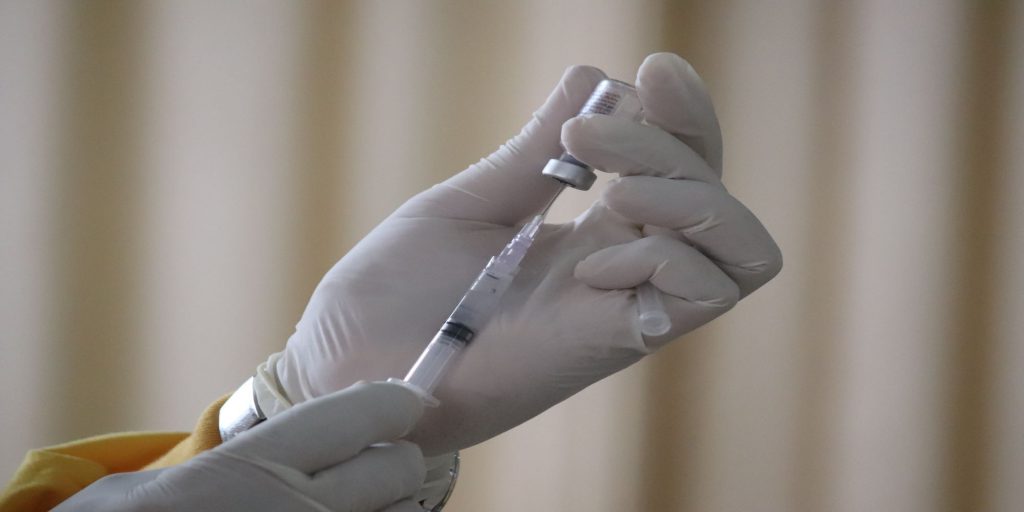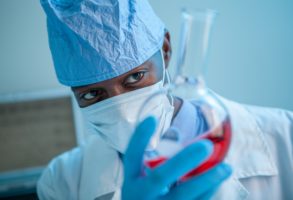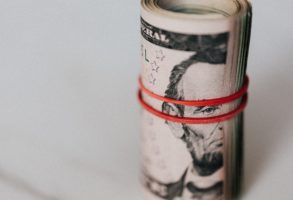
Published April 23, 2021
China recently informed its embassies of a new visitor vaccine protocol. In addition to earlier requirements that all entrants be tested via an absurd and unnecessary swab technique, China is allowing only those vaccinated with its proprietary vaccines—such as the one developed by Sinovac or the vaccine developed and manufactured by its government-owned SinoPharm company—to enter their country.
Yet as of this writing, the US FDA hasn’t received an initial submission from China for any vaccine. Initial efficacy reports for Sinovac appear to sharply pale in comparison to America’s mRNA vaccines currently authorized for use by the FDA.
The Trump-commissioned state-of-the-art mRNA vaccines have efficacy rates of around 91%, demonstrated in both clinical trials and recent real-world studies. Data from Sinovac’s vaccine shows it to be notably less effective, with recent interim data from a phase 3 trial showing only 56.5% efficacy. No public clinical trial data has been released for the SinoPharm vaccine.
China’s Sinovac vaccine use an older technique of vaccine production utilizing chemically inactivated viruses. This technology dates back to the 1950s and the advent of the polio vaccine.
Right now, there is no Chinese-made vaccine for any disease approved for use in the United States, nor is there likely to be any time soon. Furthermore, neither Chinese-made vaccine has been approved by the World Health Organization. While some countries have authorized the vaccines, they have later, puzzlingly not recommended the vaccine — illustrating a sensible lack of confidence based on efficacy findings.
These findings represent a problem when it comes to the regulation of drugs for American consumers: China’s vaccine entry requirements make it nearly impossible for the FDA to fully staff regulatory operational activity in China.
For about a year now, the FDA has halted official inspection visits on pharmaceutical facilities due to the Covid-19 scare. America is currently in a precarious situation, being dependent on overseas companies for production of 80% of the drugs used in America’s hospitals and pharmacies.
When the FDA gets permission to perform in-China inspections, they must be announced long beforehand through Chinese/U.S. State departments, giving both the Chinese government and the facilities plenty of time to prepare. Even with this preparation time for these “staged” inspections, FDA officials have found patterns of serious regulatory violations. Announced inspections are a luxury that pharmaceutical manufacturers in other countries (and the USA) do not get.
In the past, Chinese manufacturers have routinely flaunted basic standards of honesty, testing techniques and/or quality control. At one “sterile” manufacturing site in China, several departments were forced to use a single leaking, dirty bathroom, with no running water. (Interestingly, this enforcement letter was deleted from the FDA webpage and no longer shows up in a search within the FDA website.) The FDA currently has very limited power to respond to such tactics other than issue an online import alert; an obscure website many in the industry are unaware of, and to which various state boards of pharmacies and major chain pharmacies give no heed, when they choose the least expensive drugs to dispense to their patients.
A recent visit of the FDA’s compliance website detailed about 100 other Chinese manufacturers that were found to have “significant violations of current good manufacturing practice,” as per official warning letter text. Thanks to the China-originated Covid-19 preventing official travel for over a year, the FDA now has a massive backlog of FDA regulatory inspections in China, and that logjam is a blessing to the Chinese firms who routinely violate these rules and who would obviously prefer to keep the FDA —and Americans— in the dark.
How should the Biden administration and/or the FDA address these issues?
The fact is America is dependent on China for our lifeline of pharmaceuticals. Despite what you may think: the drugs we take and the food we eat are the most regulated things in the world—yet the agency with around 19,000 employees that taxpayers fund to the tune of about $6.2 billion per year, is now unable to properly or reliably inspect the facilities we’re dependent upon to produce our citizens’ medicines.
Recent news reports detailed an FDA Form 483 letter at one Johnson & Johnson Covid-19 vaccine manufacturing plant in Baltimore, stating that the plant “[was] not maintained in a clean and sanitary condition.” for things like “paint flecks” [sic] “peeling paint” and “brown residue” in adjacent corridors (i.e. not the manufacturing area.) If only the FDA were permitted the same unannounced, unrestricted access to inspect the many pharmaceutical manufacturing plants in China — a country which has an unparalleled and outrageous disregard for environmental cleanliness and ubiquitous news stories detailing their long historic lack of quality control— heaven knows what they would find.
One kind-of obvious solution is for the FDA to conduct finished product “release testing” on countries they cannot inspect, which is basically an analytical test to ensure imported drugs meet quality standards before they could be sold. It must be pointed out that the only legitimate, comprehensive form of pharmaceutical quality control testing is a term of art referred to as “release testing.”
As hard as it may be to believe, the FDA doesn’t require or conduct comprehensive “release testing” on everything imported from overseas/China despite the fact that the FDA’s Office of Pharmaceutical Quality (OPQ) operates at least six different facilities in the U.S. that have the capability to conduct or require such tests. This means that Americans are rolling the dice when they take overseas-made pills from their pharmacies.
Because the FDA’s OPQ isn’t requiring comprehensive “release testing,” at least one online “analytical pharmacy” is implying it performs “comprehensive” drug testing when it really doesn’t, preying on American consumers uncertainty and lack of regulatory understanding, propagated by the FDA’s silence and inaction on mandating its own basic quality control standards.
Under this administration its doubtful anything meaningful will happen to protect Americans from China’s war with the FDA inspectors. Some foreign policy experts have criticized Biden’s early executive orders as having directly benefited China while exposing Americans to risk.
Americans’ pharmaceutical safety and the FDA appear to be an afterthought, seeing as how this administration still hasn’t gotten around to even nominating an FDA commissioner, despite there being two obvious, outstanding choices: either Dr. Janet Woodcock or Dr. Josh Sharfstein. The lack of a permanent FDA commissioner means the status quo of poor FDA oversight at Chinese drug manufacturing facilities will propagate for many months or possibly even years, and it is the American citizens who continue to bear the risk.
Dr. David Gortler is a fellow at the Ethics and Public Policy Center.








